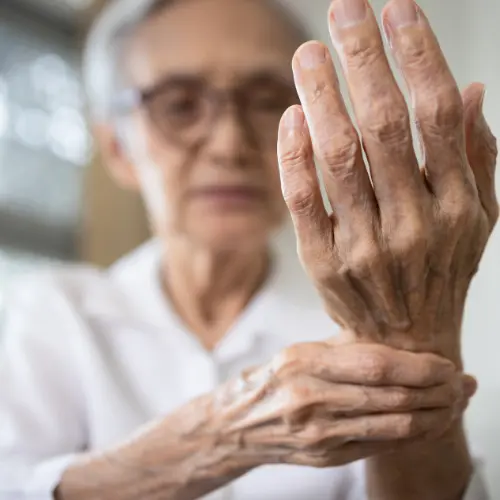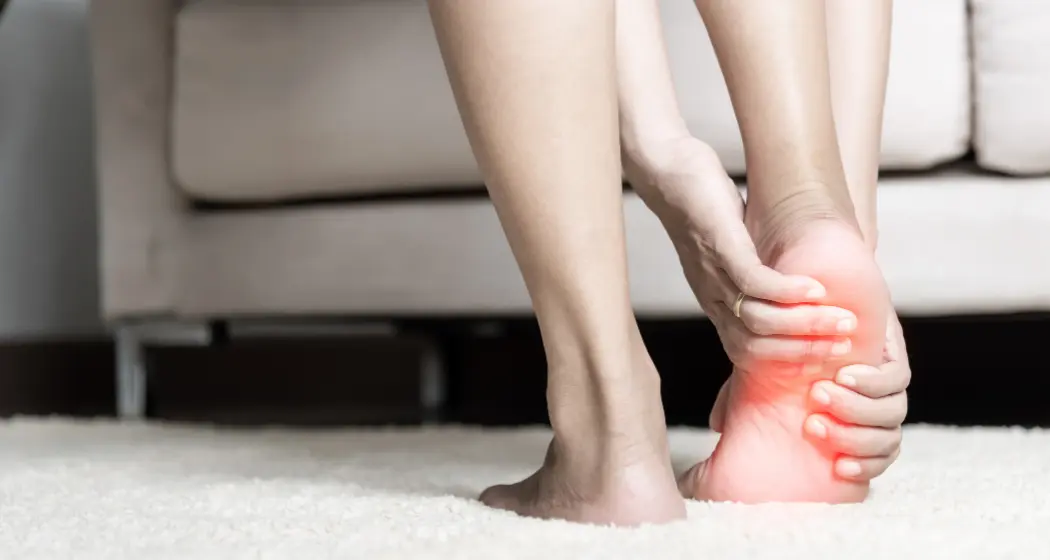Understanding Neuropathy Symptoms and Common Indications
The neuropathy definition, as quoted by healthdirect.gov, it signifies harm to the nerves that results in sensations such as pain, weakness, numbness, or tingling in different areas of the body. The understanding of this neuropathy definition is essential in recognizing the neuropathy symptoms and selecting appropriate neuropathy treatment options, such as medications, physical therapy, and neuropathy laser treatment, to address and manage the associated discomfort and challenges. The word neuropathy can be traced back to ancient greek. Neuropathy combines two words Neuro-: From the Greek word “neuron,” meaning “nerve.” -pathy: From the Greek word “pathos,” meaning “affliction” or “condition.”
Thus the definition of neuropathy explains that the nerve pathways are affected. The most common nerve pathways are those going into the hands and feet, or more commonly known as peripheral neuropathy. There are many different types of neuropathies, and many causes. In fact there are over 250 different reasons why you might be struggling with neuropathy.
The most common reasons for Neuropathy
The most common reasons for neuropathy include various autoimmune diseases or diabetes, illnesses like Guillain-Barre syndrome, infections like HIV or AIDS, poor lifestyle choices such as alcohol abuse, smoking, extended high blood pressure, exposure to toxins, chemotherapy and radiotherapy, vitamin deficiencies especially B1 and B6, traumatic injury, nerve or disc problems stemming from the spine and even vascular and blood problems that decrease oxygen supply to nerves.
Timely identification and diagnosis of neuropathy symptoms are crucial for effective neuropathy treatment. The treatment options encompass a range of approaches, including medications, physical therapy, lifestyle modifications, and specialized interventions like neuropathy laser treatment. By comprehending the common reasons for neuropathy, individuals can take proactive steps towards managing symptoms and improving their overall well-being.

How can you prevent neuropathy?
A healthy life style is the best way to prevent neuropathy. This includes a well balanced or anti-inflammatory diet. To achieve this type of diet it is best to consume lots of vegetables, and lean proteins. This includes chicken, turkey, fish, beans, legumes and nuts. Avoiding carbohydrates such as white breads, white flours, pastas and sugars. Eating some fruits but being mindful of sugars that are in these fruits. Eating several small meals throughout the day, followed by good healthy snacks including vegetables or nuts. Staying hydrated by drinking ample water and steering clear of sugary beverages, including soft drinks, while also moderating caffeine consumption.
It is also vital to get plenty of sleep between 7 to 9 hours per night. Decreasing stress levels, exercising 3 to 5x per week and avoiding any bad habits such as excessive alcohol consumption or smoking or vaping. Also avoiding injury or accidents, and taking care of your feet and hands. Checking for blisters, or wounds is vital as is good clean hygiene.
What type of Treatments are available for neuropathy?
There are various types of neuropathy treatment. The most common neuropathy treatment options include medications like Gabapentin or Lyrica, which can effectively alleviate the pain and burning associated with neuropathy. Physical therapy is vital for bolstering the muscles around the nerves and decreasing inflammation. Neuropathy laser treatment, employing techniques such as ultrasound or electrical stimulation, can rectify nerve firing patterns. Additionally, alternative therapies such as chiropractic care can address nerve compression in the spine or extremities, such as the ankle or wrist, caused by disc herniations or pinched nerves, facilitating proper nerve flow.
Accupuncture can help restore the bodies energy or chi, thus allowing better nerve flow. Medically injections into the lower back, neck or even into the hands or feet sometimes called nerve block injections can be performed using various medications, such as corticosteroids, lidocaine or marcaine. These treatments can help calm the pain. These treatments can also be performed with regenerative medicine therapies including platelets rich plasma or PRP, or by using human cellular tissue.
Is neuropathy reversible?
Depending on the type of neuropathy, the length of time you have had the problem and the amount of damage to the peripheral nerves there is a possibility of reversing neuropathy and improving and even eliminating the symptoms of neuropathy with the use of regenerative medicine.
However, some general expert advice that may be helpful for people with neuropathy includes:
- See a doctor to get a diagnosis and discuss treatment options. The first step in managing neuropathy is to get a diagnosis from a doctor. Once you know what is causing your neuropathy, your doctor can recommend appropriate treatment options.
- Manage any underlying medical conditions. Effectively managing the underlying medical condition, such as diabetes, is essential for dealing with neuropathy. This will help to prevent further damage to your nerves.
- Take medications as prescribed. There are a number of medications that can help to relieve the symptoms of neuropathy. Your doctor may prescribe one or more of these medications to you.
- Make lifestyle changes. There are a number of lifestyle changes that can help to improve neuropathy symptoms. These involve maintaining a nutritious diet, engaging in regular exercise, and ensuring sufficient sleep.
- Manage pain. Neuropathic pain can be difficult to manage, but there are a number of things you can do to relieve it. These include taking over-the-counter pain relievers, using ice or heat therapy, and practicing relaxation techniques.
Here are some additional expert tips for managing neuropathy symptoms:
- Avoid activities that aggravate your symptoms. This may include activities that put pressure on your nerves, such as wearing tight shoes or carrying heavy objects.
- Use over-the-counter pain relievers to help relieve pain. Acetaminophen (Tylenol) and ibuprofen (Advil) are two common over-the-counter pain relievers that may be helpful for neuropathy pain.
- Apply ice or heat therapy to affected areas. Applying ice can numb pain, and using heat can relax muscles and enhance blood circulation.
- Practice relaxation techniques. Practicing relaxation methods like yoga, meditation, and deep breathing can alleviate stress and anxiety, factors that may intensify neuropathy pain.
- Get enough sleep. When you are well-rested, you are better able to cope with pain and other symptoms of neuropathy.


